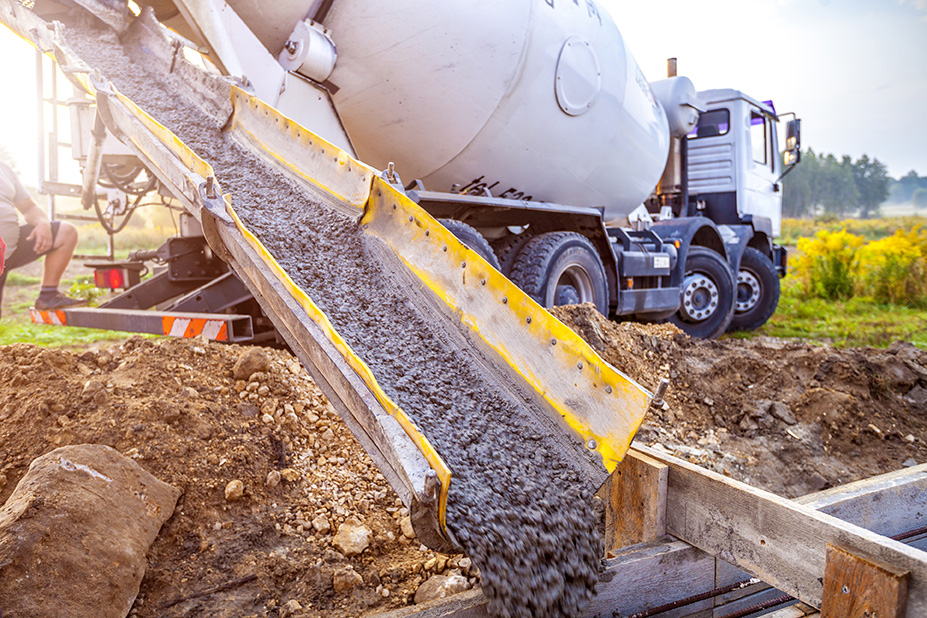When you have a project that requires concrete, one of the most challenging aspects is figuring out how much you’re going to need. You do not have to be an engineer or mathematician to do the calculations, but it doesn’t hurt to have an idea of the basic math used to estimate the correct amount. However, Intermountain Concrete Specialists has a concrete calculator that can make it that much easier.
Before you start entering numbers in the calculator, however, you need to have some information about your project to help get the measurements right. Use the following guide to help estimate the correct amount of concrete so you won’t have to place an emergency order at the last minute.
Types of Concrete
There are multiples types of concrete that can be used for home projects. The type you’ll want to use depends on several factors, including the project size, your experience and the amount and type of use and traffic. The five most common types include:
- Regular-set: This concrete sets in 24 to 28 hours and it’s most often used for larger-scale projects.
- Quick-set: If you need the concrete to harden fast, in 20 to 40 minutes, this is a good option—especially if your project is small.
- Crack-resistant: Sidewalks, driveways and paths should utilize crack-resistant concrete as it is durable and meant to withstand heavier traffic.
- High-strength: If you’re pouring a foundation, high-strength concrete is essential. Your house needs a strong base that will stand the test of time.
- Polymer: A project that will be exposed to extreme heat or weather may benefit from the use of polymer concrete.
If you aren’t sure which type will work best for your project, it may be best to speak with a professional to help you determine the ideal option.
Bagged or Ready Mix?
Once you know the best type of concrete for your project, decide whether your project can benefit from ready mix concrete or bagged. Large jobs, like a patio, driveway, foundation or parking lot, almost always require ready mix concrete brought in by a concrete company. It simply doesn’t make sense to purchase multiple bags that you’ll have to spend the time and energy mixing on your own.
A smaller project, such as a replacement slab for a sidewalk, pad or setting fence posts, can usually be completed with several bags of concrete that you can mix yourself in a wheelbarrow. However, you may want to consider renting a small mixer if you don’t want to deal with the shovel and wheelbarrow method.
How To Estimate
Now that you’ve decided on the type of concrete and whether you’ll need bagged or ready mix, you can estimate the amount you’ll need. Concrete is measured in volume, so first determine the volume of your project. For example, if you are pouring a rectangular patio slab, measure the length, width and depth to figure out the cubic feet of the area. Remember, if you’re multiplying feet and inches, simply multiply all the numbers together, then divide by 12.
This is where our concrete calculator comes in handy. Once you have your measurements, just enter them and let your computer do the work. If your project is not square, simply measure it as a rectangle and assume that you’ll have some concrete left over. This ensures you have enough to complete your project without having to order more.
Common Amounts
If going with bagged mix, generally an 80-pound bag of concrete will cover 2 square feet for a 4-inch-thick slab. So, you need about 41 80-pound bags to fill a cubic yard. If you have access to 60-pound bags, two of them will cover a 2-square-foot slab that is 6 inches thick.
If going with ready mix concrete, a typical truckload can hold up to 10 cubic yards. How many truckloads you’ll need depends on how much you calculate for your project. Generally, a concrete professional can help you determine the amount accurately.
Get Help Today
If all of these numbers are making your head swim, remember that you can use our concrete calculator or call us to ask for assistance. We’re happy to help!

